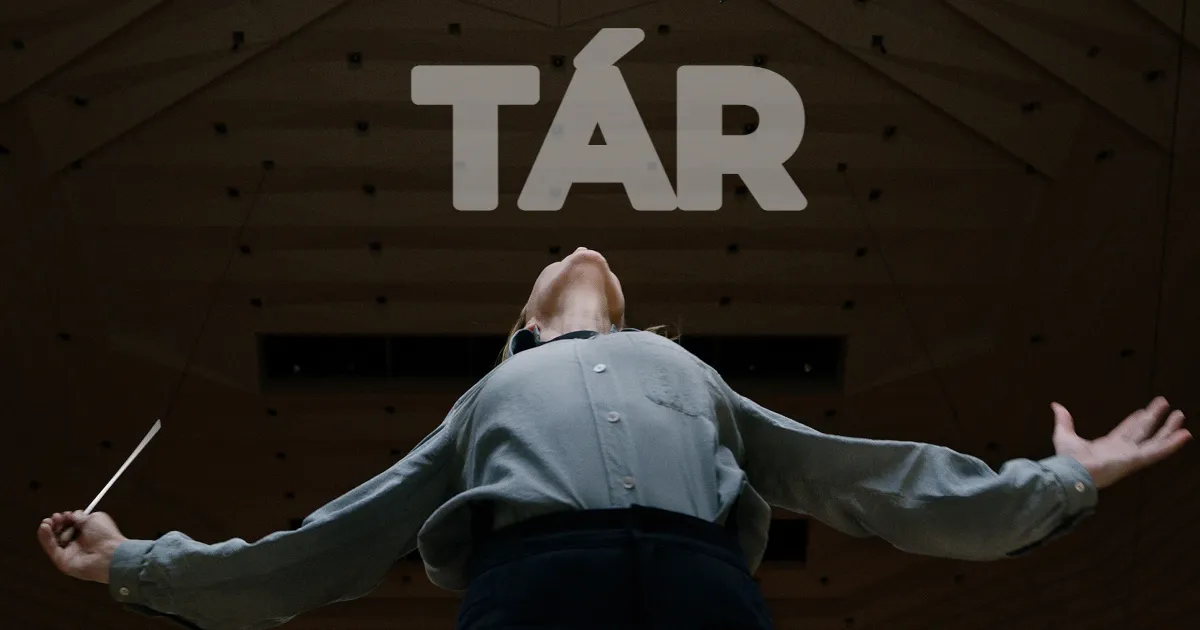The one thing I know for certain coming out of Tar, it’s that actor Cate Blanchette is an absolute force. This is an excellent boon for Todd Field’s 2022 drama, as nearly every scene focuses on the film’s complex and expertly realized protagonist, Lydia Tar. As her long and illustrious resume is being laid out for us, the audience watches as Tar is placed upon her mighty pedestal at the top of the music world. She is ultimately being set upon such a height so that the audience can witness her fall.
The idea of a film chronicling the rise and fall of a powerful and influential figure is nothing new and arguably reached its peak with Orson Welles’ Citizen Kane more than 80 years ago. To combat this familiarity, Tar plants itself firmly in the present, pulling its themes directly from modern discourse over power, art, and the people society decides to platform. This strategy is immediately highlighted in an electric and unnerving scene early on, where Tar discusses Bach with a nervous student while guest teaching.
The discussion over Bach is given its proper respect and nuance, with Tar and the student having a realistic back-and-forth charged with modern buzzwords and arguments that one could easily find in a real-world conversation. This long and drawn-out exchange has no seeming impact on the rest of the movie and plot, yet this scene is captivating. The performances are remarkable, the dialogue biting, and the cinematography is visually stunning and meaningful.
All of this is emphasized by director Todd Field’s penchant for “long takes,” a cinematic technique where a scene takes place over a single uncut shot. The shot’s length forces the camera and actors into a sort of choreographed dance, giving the scene a realism and rhythm that grounds the film in modern discourse in a way that provides gravity to the dialogue and performances. By the end of this scene, I was fully sold on the movie and immersed in the world where Lydia Tar is a household name.
The classroom scene serves almost as a microcosm for the entire movie, highlighting the strengths that made Tar such a fascinating watch. The movie is expertly crafted, demonstrating the confidence and style of a truly accomplished director. There is no traditional musical score in a film about music, and its cinematographic style highlights empty space. These two choices lend Tar a creeping dread that seeps into every scene, as the audience is constantly left waiting for Tar to finally crash to earth from her dizzying peak.
The performances and dialogue remain sharp, dancing around topical and deeply nuanced themes while grounding the characters in a believable realism that accentuates emotions, anchoring modern discussion in the lived experience of the people involved. When Tar eschews realism, it does so without breaking the world it created, instead using stark stylization to delve deeper into the character’s psyche by remaining in Tar’s subjective perspective.
However, that classroom scene is indicative of the film’s flaws. The first time I watched Tar, I was unsatisfied with where the scene had left off but assumed the theme would be tied together in the remaining two hours of runtime. Yet, it never came up again, leaving me confused as to what the movie was saying.
In the case of Tar, you will notice that the film almost makes a point to leave the debate unresolved, setting up each of its many themes with nuance, then refusing to elaborate on them. The Bach discussion is never brought up again, and likewise, themes of sexual assault and abuses of power are deliberately left ambiguous and without resolution.
Tar is a movie aiming to be a deep examination of modern social issues but instead seems to use these issues as set dressing or an external force affecting Lydia’s life to push forward the plot. The result turns the coldness of Lydia’s character and the cinematic techniques with which she is portrayed into a soulless exercise.
As a portrait of a complex character, Tar excels, with a commanding performance by Cate Blanchette elevated by a confident style that forces you to be sucked into her world. I recommend Tar for those who appreciate multilayered characters, but those who look for anything more will find a surface-level summary of delicate social issues.
Discover more from Post Alley
Subscribe to get the latest posts sent to your email.

I have nothing to add, just appreciate your analysis. I was left cold and you articulated several reasons why.